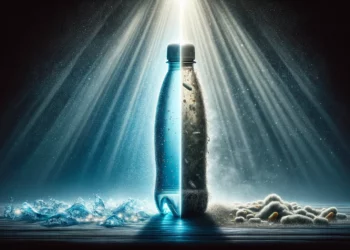Researchers from Environment Canada (EC) and the University of Alberta have published a study in which they showed contaminants accumulated in the snow near oilsands operations, despite what oil companies are claiming. They also discovered contaminants in precipitation from testing in the region.

Perhaps even more disturbing is that fact that researchers were discouraged to talk about their results, according to an internal federal document. This was first obvious at a November 2011 conference in Boston, where the results were first published.
“EC’s research conducted during winter 2010-11 confirms results already published by the University of Alberta that show contaminants in snow in the oilsands area,” said a background document about Environment Canada’s latest findings. “If scientists are approached for interviews at the conference, the EC communications policy will be followed by referring the journalist to the media relations … phone number. An appropriate spokesperson will then be identified depending on journalist questions.”
The original study, led by University of Alberta scientists Erin Kelly and David Schindler, analyzed winter snow, and found a direct correlation between contamination and oilsands operations proximity: the highest concentrations were found right next to the field, with levels dropping further away. However, according to the leaked document, which was also in the hands of Environment Minister Peter Kent, instead of the real results, a scripted list of answers was “suggested”, one which claimed that no link was established between levels of contaminants found and any effect on fish.
The document also said that Environment Canada scientist Derek Muir, who was slated to attend the conference in Boston, and another senior department official, Dan Wicklum, would be allowed to answer questions from reporters “if approved by media relations.” The situation is still pretty murky, but the fact that Wicklum took a leave of absence from his senior government position last January to accept a new job as chief executive of a new oil and gas company seems pretty suggestive.
This is quite a dreadful and shameful situation, and one which should never happen in any country – let alone in developed countries such as Canada. There really isn’t a lot of information related to this cover-up, and the one that can be found is often contradictory, so I won’t go any further. I was outraged by this situation, and as soon as I found something else on this matter I’ll be sure to write it down.
Main Source






